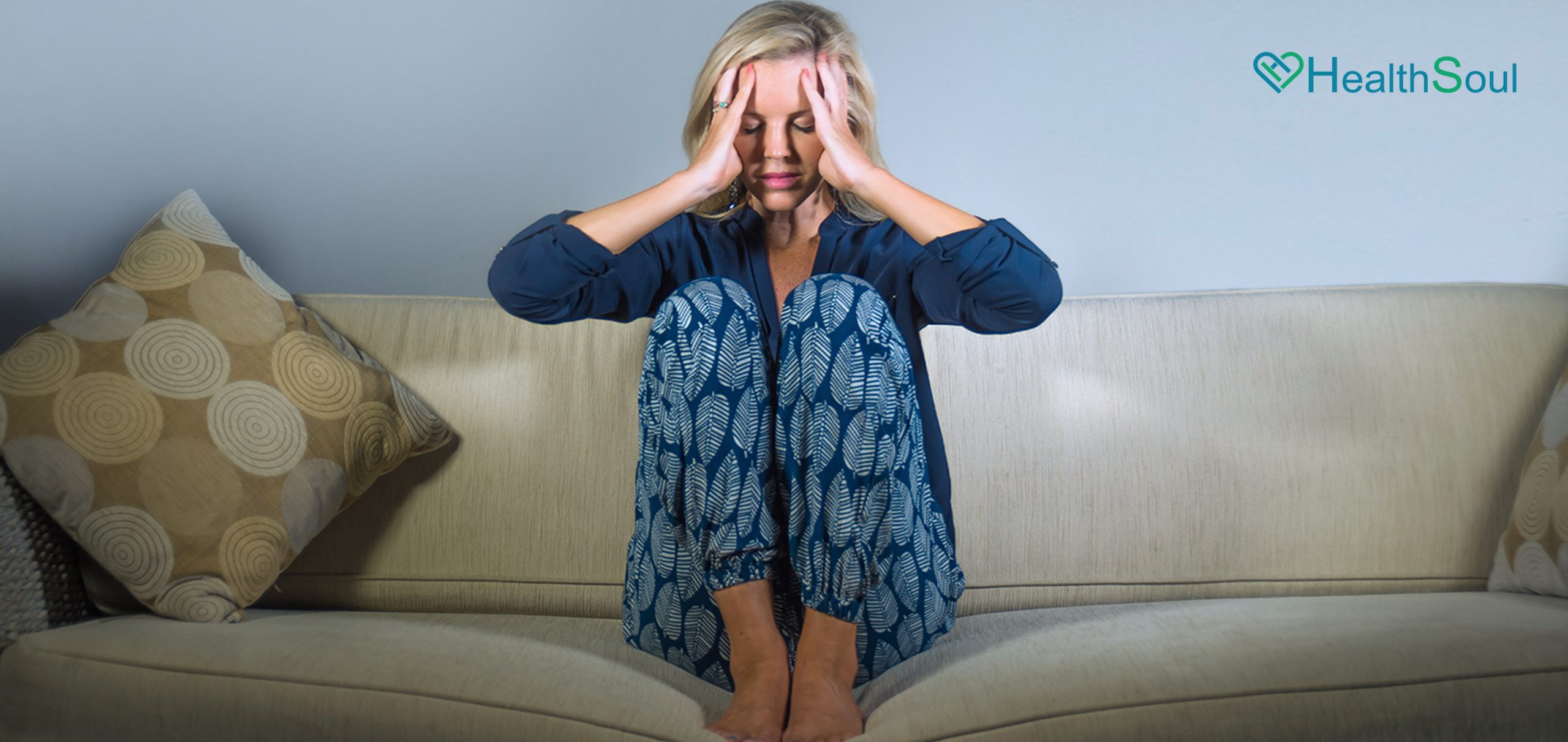The Link Between Depression And Physical Pain

When we think of depression, we often think of symptoms such as a low mood and the loss of interest in activities that one would typically enjoy. While these are accurate symptoms that characterize a depressive episode, other, lesser-known symptoms of depression may show up in those experiencing depression or a depressive episode, too – including physical symptoms. So, what’s the link between depression and physical pain? Could your body aches be attributed to depression, and if you’re experiencing symptoms of depression, what can you do?
The Link Between Depression And Physical Pain
First, let’s cover the basics. There’s more than one kind of depression or depressive disorder. Someone may experience depression on a situational basis, or they may live with a condition such as Major Depressive Disorder (MDD), Persistent Depressive Disorder (PDD), or Bipolar disorder. Symptoms of depression may include but aren’t limited to:
- A low or depressed mood
- The loss of interest in activities one would typically enjoy
- Feelings of hopelessness or worthlessness
- Social isolation or withdrawal
- Trouble concentrating or focusing
- Moving more slowly than usual
- Sleeping too much or too little
- Changes in appetite
- Increased irritability
- Excessive crying
- Headaches
- Fatigue
- Body aches and pain
- Muscle tension
- GI distress
In looking at the symptoms above, you’ll notice that there are various ways depression can show up in the body. One study showed that 69% of those who met the criteria for depression experience somatic, or in other words, physical symptoms. The reason for this is most often attributed to shared neural pathways. If you experience physical pain as a result of depression, you aren’t alone, and your experience is both very common and very real. Now the question is, is there anything you can do? Thankfully, the answer is yes.
Diagnosis And Relief For Depression
Symptoms of depression aren’t easy to live with, but the good news is that depression is considered a highly treatable condition. There are a number of different research-backed treatments that can be used for depression. One of the most common and leading treatments for depressive disorders like major depressive disorder or MDD, one of the most common types of depression, is therapy. Acceptance and commitment therapy (ACT), cognitive-behavioral therapy (CBT), interpersonal therapy, and psychodynamic therapy are examples of research-backed modalities that may be used to treat depression. If you feel that you may benefit from therapy for depression, it may be advantageous to search for a provider who specializes in or works with depression. Different therapies will work best for different people, and different therapists take very different approaches in their practices, so note that what works for one person with depression may not work for another and vice versa. It’s about what works for you. Therapy can be used alone or in conjunction with medication. Some medications* used for depression are also prescribed for physical pain, further emphasizing the connection between depression and physical pain. If you have depression or think that you might, it’s important to talk to a medical or mental health provider who can help. For a formal diagnosis, see a medical professional who is qualified to diagnose mental disorders, such as a psychiatrist.
*Please consult with a doctor or primary care physician (PCP) before considering any medication options.
Find A Therapist
Whether you’re coping with symptoms of depression, life stressors, a physical health condition, or something else that’s on your mind, having someone to talk to matters. There are a number of different ways to find a therapist who meets your needs. You can ask your doctor for a referral, contact your insurance company to see who they cover, search the web, or sign up for a reputable online therapy platform like BetterHelp. All of the providers on the BetterHelp platform are licensed, and online therapy is often more affordable than traditional in-person services are without insurance. You deserve to get the support that you need, so don’t hesitate to take the first step toward finding a provider today.

